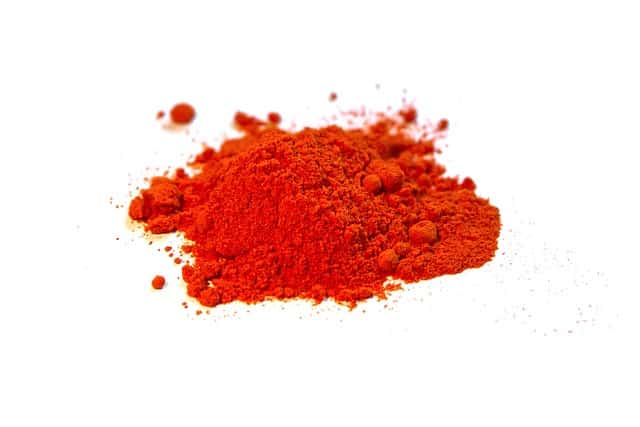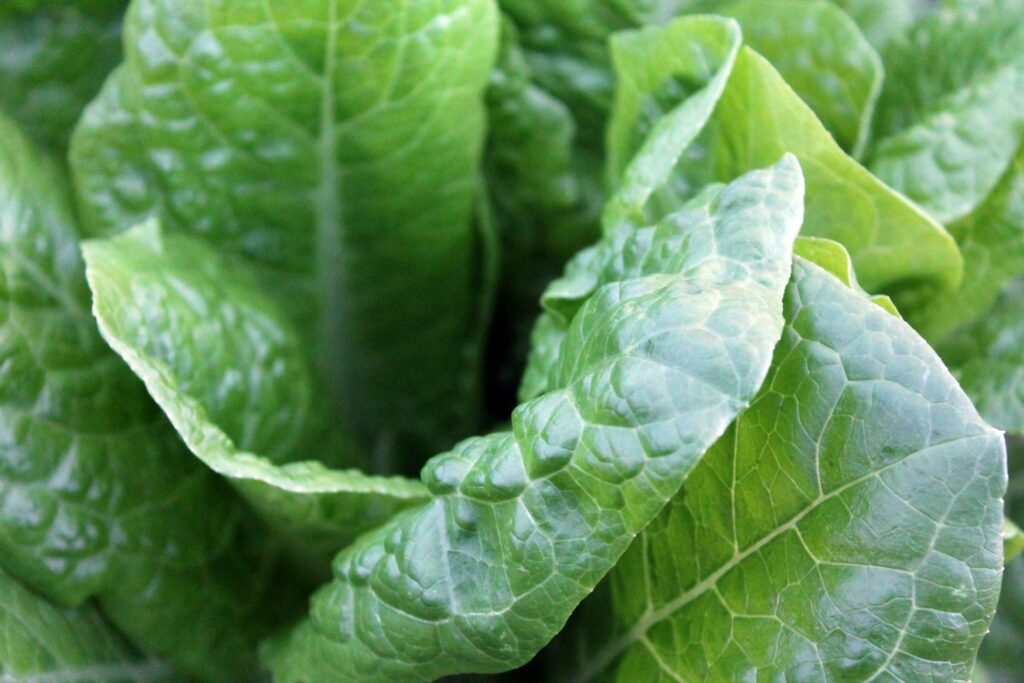Imagine yourself walking around a lively spice marketplace in Marrakech, where the atmosphere is full of the alluring aroma of turmeric, cardamom, and cinnamon. Every stall is filled with vibrant colors – earthy browns, fiery reds, and golden yellows – each characterizing a different spice from a different region.
Every seller boasts about his󠆟/her product’s rich heritage, highlighting their potency and purity. One of the sellers impressively asserts, “My spices are organic – free from chemicals, grown naturally just as it was intended by nature.”
You stop for a moment, fascinated. It is not the first time you are hearing about organic spices, but now, you start wondering – are they really worth the effort and cost? Do the organic spices give something extraordinary or this is just a marketing strategy?
This is the question that many people often ask themselves as they walk along supermarket aisles as they weigh between organic spices and their conventional counterparts. Here, we explore this subject to give you more information about organic spices.
In the end, you’ll know whether they are worth your extra coin.
What Are Organic Spices?
Organic spices refer to those spices that are cultivated without the application of synthetic herbicides, pesticides, or genetically modified organisms (GMOs). In this case, farmers use natural farming methods that enhance soil health and promote environmental sustainability.
The minimal processing of these products also helps in maintaining their natural profile. Again, the certification procedure for these organic products is thorough and meticulous; this ensures that the products meet the stringent standards set by various established regulatory bodies like the United States Department of Agriculture (USDA) or the European Union Organic Certification.
Health Benefits of Organic Spices
Improved nutritional value
Considering the nutritional profile of organic spices, they usually have greater levels of antioxidants and other beneficial nutrients when compared to conventional spices.
For instance, research by Worthington Virginia established that organic products generally contain increased levels of nutrients such as phosphorus, magnesium, iron, and vitamin C (1).
Such nutrients are usually beneficial when it comes to preventing chronic illnesses and maintaining your general wellness.
Reduced exposure to harmful chemicals
Since organic spices are grown using natural methods, they do not contain synthetic chemicals. This reduces your exposure to such chemicals. Research has demonstrated that pesticides and herbicides applied in conventional farming often leave chemical residues on crops (2). These chemical residues can have lasting health effects.
While washing and cooking usually reduce the levels of these residues, some will remain in spices because of their high concentrations.
Improved gut health
A number of spices, including ginger, cinnamon, and turmeric among others are recognized for their antimicrobial and anti-inflammatory properties. Organic farming ensures that these properties are not interfered with; organic spices are free from chemicals that can interrupt gut microbiota (3).
Flavor and quality
When it comes to flavor and quality, organic spices are usually celebrated for their outstanding aroma and flavor. When evaluating the quality of spices, different factors are considered, including soil health, methods of harvesting, and processing methods used.
Organic farming processes stress the use of natural and rich soils by farmers. This promotes the natural aromas of the produce.
Potency and freshness
Typically, organic spices are usually processed and packed very fast after they are harvested, guaranteeing freshness. Thus, these spices are not likely to have artificial preservatives or fillers which often contribute to potency loss.
Their stronger flavor implies you only require a smaller quantity of it; this offsets their relatively higher upfront price.
Minimal irradiation
Different from organic spices, conventional spices are usually irradiated to destroy bacteria and increase their shelf life. This process often interferes with nutrients and natural flavors. Organic certification does not allow irradiation; this preserves the product’s integrity.
Environmental impact
Sustainable farming practices
Environmentally sustainable methods such as composting, crop rotation, as well as natural crop rotation, are always used in organic farming. Such practices ensure that the soil remains fertile and soil erosion is minimized.
This is more sustainable compared to conventional farming methods.
Reduced carbon footprint
The process of producing synthetic pesticides and fertilizers often generates considerable greenhouse gases. Organic farming helps by avoiding the application of these inputs, thus reducing the carbon footprint.
Moreover, organic farming methods involve carbon sequestration practices like reduced tillage and cover cropping.
Biodiversity conservation
When it comes to conserving biodiversity, organic farms play a major role as they support different animal and plant species.
This ultimately promotes ecosystem resilience and natural pest control, thus limiting the necessity of chemical interventions.
Social and ethical considerations
Fairtrade practices
Organic spice farmers often abide by fair trade standards. This ensures that they get fair wages and also carry out their operations under favorable conditions.
Such ethical considerations attract individuals who prioritize supporting sustainable and equitable food production methods.
Support for small farmers
In most cases, organic farming is done by small-scale farmers who usually consider quality rather than quantity.
Thus, by opting for organic spices, you make a big contribution to the lives of these organic farmers.
Potential shortcomings of organic spices
Limited availability
Compared to conventional spices, organic spices aren’t widely available, especially in rural areas. This often makes it challenging for many consumers to include these organic products in their meals.
Relatively higher cost
Price is one of the most prevalent concerns with organic spices. Organic farming needs more labor-intensive practices and usually yields smaller amounts. This often raises the prices.
While these prices show the actual cost of sustainable farming, they sometimes push away consumers who may desire to buy organic spices.
Possibility of mislabeling
When you enter supermarkets, not every product marked as “organic” usually meets the established standards. This necessitates consumers to be extra careful when going for organic products.
They need to look for reliable certifications like EU Organic or USDA Organic to guarantee authenticity.
Are organic spices worth it?
After analyzing all that pertains to organic spices, let’s now answer the biggest question, “Are they worth it”?
The choice to go for organic spices usually depends on one’s personal values, priorities, and budget. Some of the important factors you should consider include:
Health-consciousness
For those who prioritize limiting their exposure to synthetic chemicals, organic spices are the best option. Again, organic spices are richer nutritionally compared to their conventional counterparts.
In particular, these products are the best option for people with serious health conditions, sensitivities, or allergies.
For culinary enthusiasts
For consumers who can be described as culinary enthusiasts, organic spices provide greater freshness and flavor. This makes them perfect for consumers who value top-quality ingredients in their meals.
The potency of organic spices usually offsets their relatively higher price since smaller quantities are enough to provide the desired output.
For environmentalists
When you opt for organic spices, it implies you support sustainable farming methods thus limiting your environmental footprint.
This is a great way to mitigate climate change and conserve biodiversity.
Common organic spices
Turmeric
Turmeric is mostly recognized for its flamboyant golden hue. It is feted for its antioxidant and anti-inflammatory properties, mainly because of curcumin, one of its main compounds. Thus, this spice is great when it comes to reducing inflammation and boosting immunity.
It is commonly used in smoothies, curries, as well as golden milk.

Fig. 1: Turmeric (Pixabay).
Ginger
Ginger is a zesty and pungent spice and a powerhouse for nausea relief and digestion. Organic ginger is void of harmful chemicals thus maintaining its natural medicinal properties. This spice is mostly used in baked goods, curries, and teas.

Fig. 2: Ginger (Pixabay).
Cinnamon
Made from the bark of the Cinnamomum tree, cinnamon can be described as warming and sweet. It is perfect for blood sugar regulation and bringing a cozy aroma to meals. Cinnamon is mostly used in beverages, oatmeal, and in baking.

Fig. 3: Cinnamon (Pixabay).
Black pepper
Usually described as the king of spices, black pepper has a spicy, bold kick. This spice helps in facilitating digestion and promoting nutrient absorption. It is a common seasoning for savory meals.

Fig. 4: Black pepper (Pixabay).
Paprika
Paprika is mainly made from red peppers and ranges from smoky to sweet and spicy. It offers a natural way for individuals to add color, and flavor, as well as a dosage of antioxidants into their dishes. This spice is commonly used in marinades, stews, and soups.

Fig. 5: Paprika (Pixabay).
Tips to buy organic spices
Always check for certifications.
Before you make the purchase, check for organic labels such as EU Organic, USADA Organic, or any other relevant certification in your country. This helps to make sure that the product satisfies the established organic standards.
Buy in bulk
Buying in bulk in co-ops or stores helps you to save money.
Buy from local brands.
If you buy from local brands, you support local farmers. This also helps in minimizing transportation-associated costs and emissions.
Store properly
You should always keep your spices in airtight containers and away from heat and light to preserve their potency and freshness.
Conclusion
Therefore, are organic spices worth it? For individuals who prioritize health, superior taste, and sustainability, the answer is a big yes. Organic options do not just enhance one’s culinary experience but also help in supporting eco-friendly and sustainable farming methods.
Again, organic spices offer other benefits such as increased nutritional value and reduced chemical exposure.
While organic spices may cost relatively more than their conventional counterparts, their benefits usually outweigh this price difference.
References
1. Worthington, V. (2001). Nutritional quality of organic versus conventional fruits, vegetables, and grains. The Journal of Alternative & Complementary Medicine, 7(2), 161-173.
2. Aktar, W., Sengupta, D., & Chowdhury, A. (2009). Impact of pesticides use in agriculture: their benefits and hazards. Interdisciplinary toxicology, 2(1), 1-12.
3. Amalraj, A., Kuttappan, S., AC, K. V., & Matharu, A. (Eds.). (2022). Herbs, Spices and Their Roles in Nutraceuticals and Functional Foods. Elsevier.


